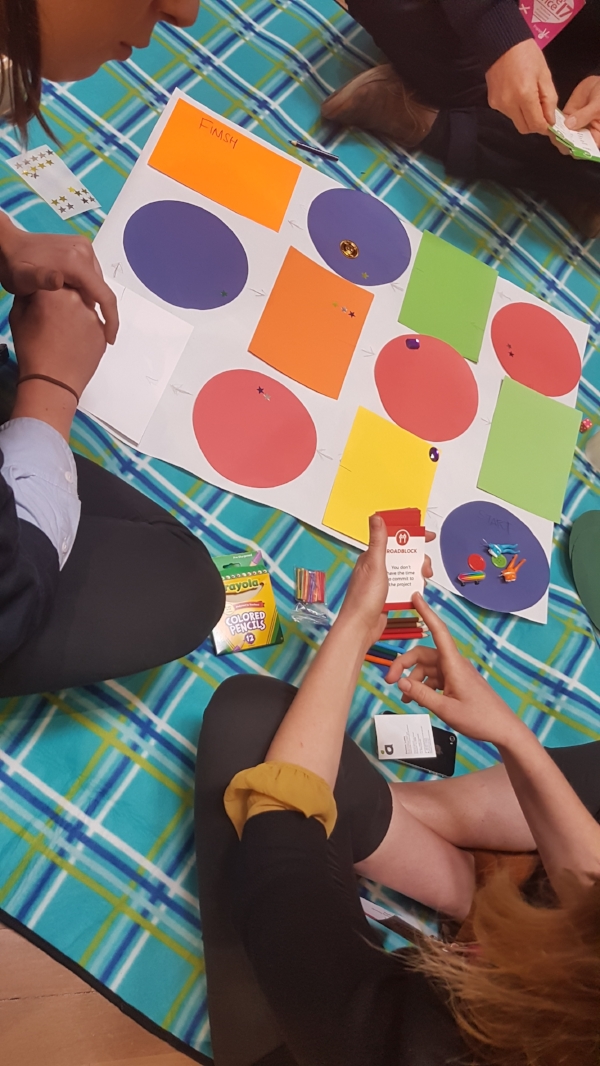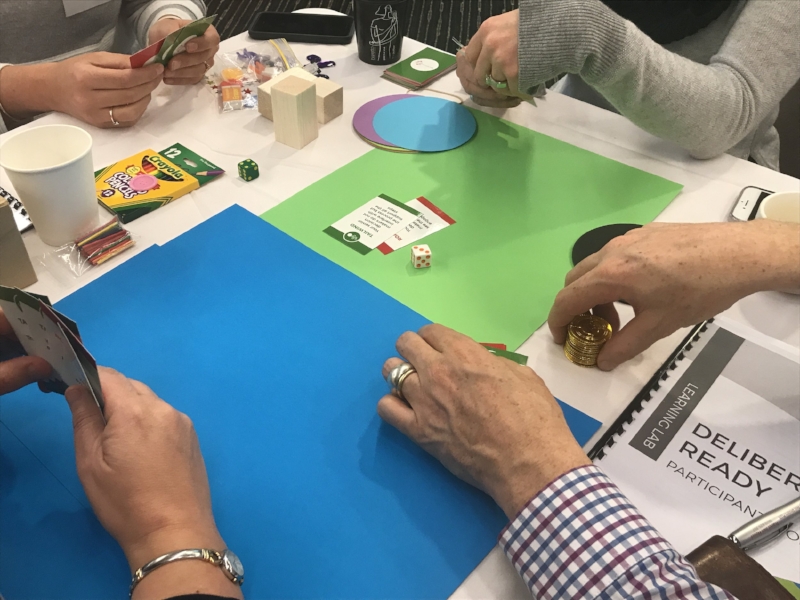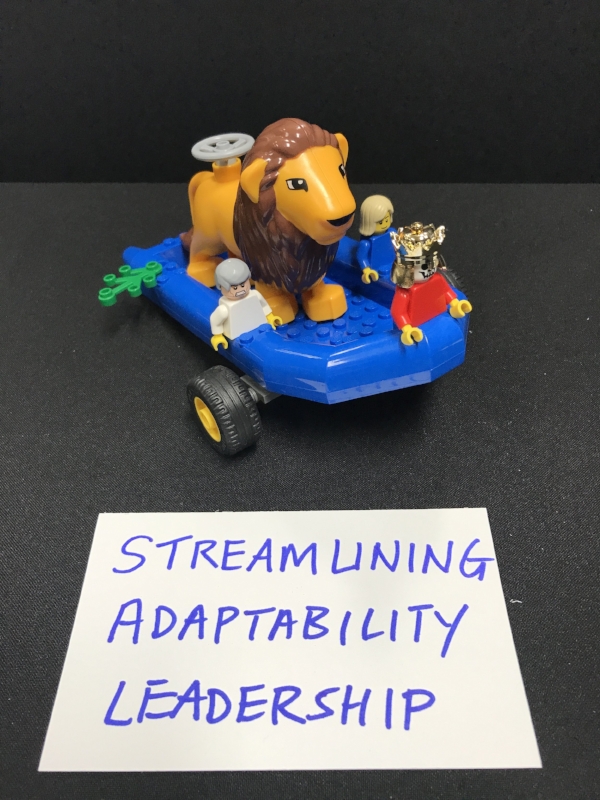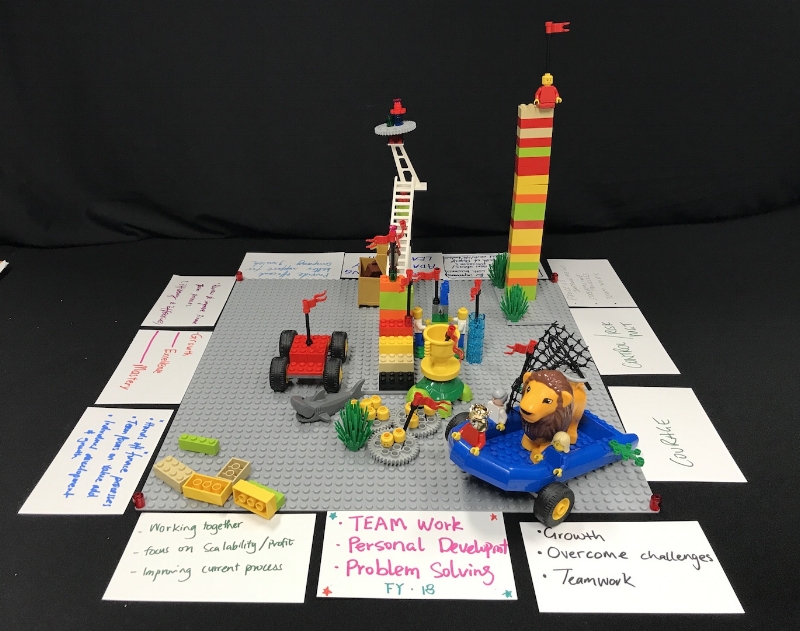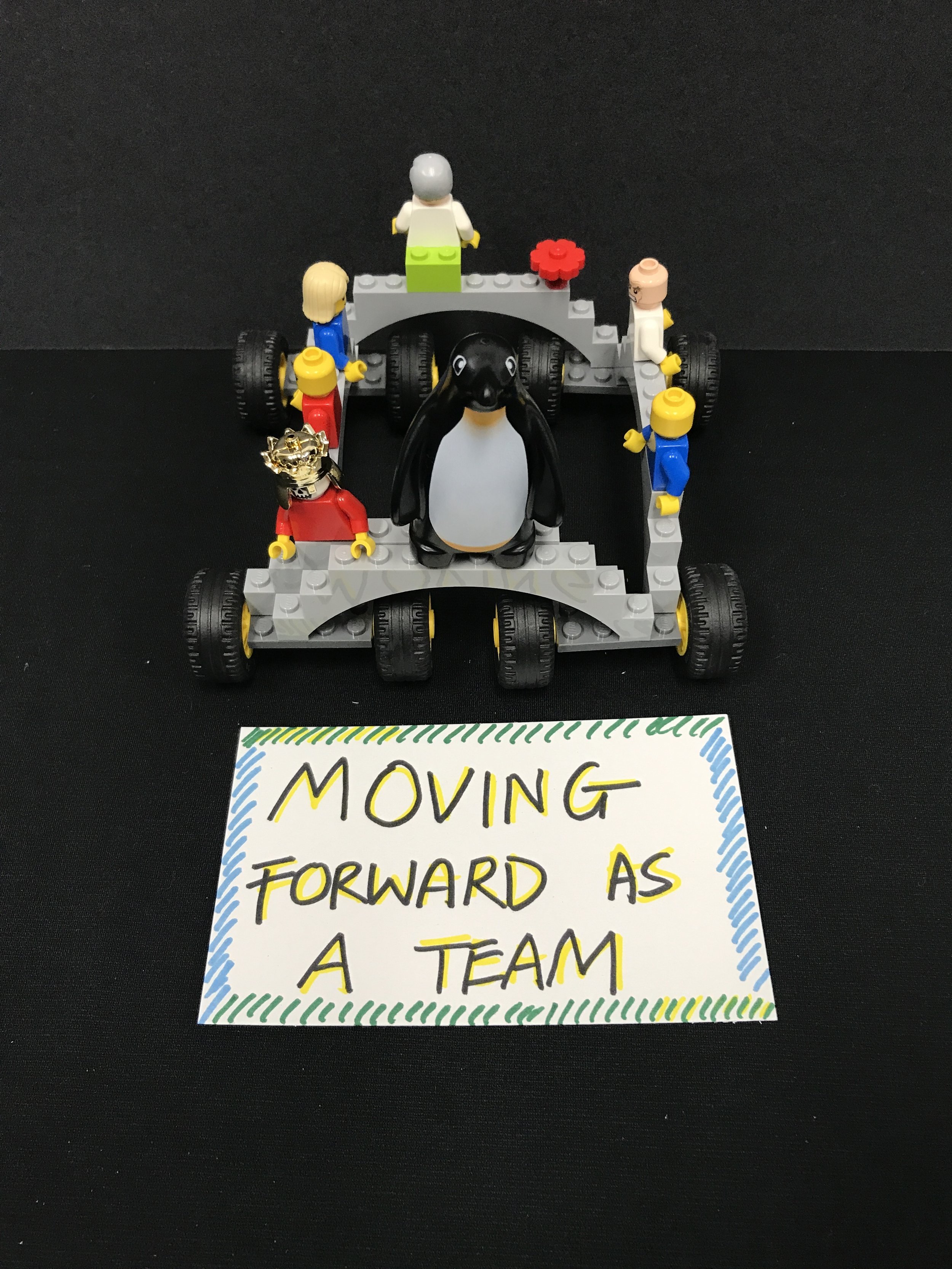When you think about the word ‘play’, what do you imagine?
We’re going to hazard a guess and assume what you don’t see is a group of adults considering important issues or strategic concepts. That’s because cultural norms suggest that play is more at home in a playground than a boardroom.
In this month’s myth buster, we’re going to ask you to put that limiting belief to one side for a moment. We’re exploring how play can be used to achieve positive outcomes and new possibilities in the professional world. Because, as it turns out, adults (even the suit-wearing ones) and organisations (even the big serious ones) might benefit from a little game now and then.
MYTH:
Quality, useful outcomes can’t be achieved through fun, games or play.
In Reality:
Let’s start by debunking the misconception that sits behind this myth: Meetings don’t need to be serious, boring, rigid or formal to achieve quality results. In fact, these safe, traditional approaches can have the opposite effect.
You may have seen games used at the start of a meeting as an icebreaker or ‘get to know each other’ activity. Games can add a lot of value here, and we wrote about the impact of introductory activities in this previous #monthly myth. Games are often also used as a very effective team-building activity.
The benefits of play go beyond icebreakers and team-building though. Integrating games, play and fun – even in subtle ways – can really lift a group and transform the conversation. In fact, we often use play when we work with groups around particularly ‘serious’ issues like change management, internal ‘blocks’, and strategic planning.
MosaicLab participants building and playing a game as part of Deliberation Ready training sessions.
A few reasons to integrate facilitated play into your next process:
Elephant in the room?
Play allows participants to feel more comfortable and put that elephant on the table because the environment feels more welcoming and less threatening/heavy.
Hierarchies overshadowing genuine participation?
In play, hierarchies don’t matter so much. Everyone is an equal participant, and the environment doesn’t feel like ‘business as usual’ so hierarchy becomes less relevant.
Struggling with dominating personalities?
Just like hierarchies, dominating personalities take a back seat. Because participation is equal, voices that tend to remain unheard tend to surface. Everyone has a role, which means no one is left waiting in the wings.
People stuck in a rut?
Group think and patterned behaviour struggle to survive when you introduce play. Changing things up can cut through old habits and force new ideas, approaches and thought processes to emerge.
Dealing with siloed thinking?
Collaboration is impossible without connection - and connection is an inevitable result of play.
Need new solutions?
Thinking in a new way opens us up new possibilities, creative concepts, inspiring innovations and big ideas.
“You can learn more about a person in an hour of play than you can from a lifetime of conversation.”
We're getting more playful ourselves ...
We’re all about better conversations. Through our work, we know that in the right context, and when facilitated effectively, games and play absolutely help to achieve this aim.
We’re constantly trialling and experimenting with play through both our training sessions and group facilitation work. A few ways we’re currently using play include:
Supporting organisations through change management processes: Using games to encourage participants to think differently about problems and problem solving, identify roadblocks and opportunities, and stimulate creative solutions.
Using Lego to enhance sessions: We’re lucky enough to have Kate Henderson (a LEGO® SERIOUS PLAY® facilitator) on our team. Kate’s been using Lego with a range of groups (including corporate groups and our own team) for several purposes such as strategic planning. Lego helps people to ‘use their hands before their head’ and work with metaphor and visuals, which leads to new thought patterns and solutions.
Learning through play: Training sessions, like our Deliberation Ready two-day experience, incorporate games that educate, inspire and energise participants – because no one learnt anything falling asleep while someone lectured at them.
Bringing the zing back to weary participants: While games are great at the beginning of a session as an introductory activity, they’re also good at cutting through exhaustion and re-energising a group that’s been working hard and needs some ‘oomph’ to get them through their post-lunch discussions.
Participants' creations - LEGO® SERIOUS PLAY® session with MosaicLab's Kate Henderson.
WANT TO LEARN MORE ABOUT THE BENEFITS OF PLAY ?
- Ted Talks has a video playlist based around play – from ‘why you should take time to play’ to ‘how a video game might help us build better cities’, there’s a plethora of resources available at www.ted.com/topics/play.
- 'Why it’s good for grown-ups to go play' - an article from the Washington Post about research into play and its benefits to adults.
- More information about LEGO® SERIOUS PLAY®
We've summarised all the top tips from this post into a handy free download. Perfect for sharing, printing or filing away for future use. Click the image to subscribe to our monthly e-newsletter 'The Discussion' and grab this free resource.
ENJOYED THIS POST?
Stay in the know! Get new posts, actionable ideas and fabulous free resources delivered to your inbox - subscribe to our monthly e-newsletter 'the Discussion'.
OVER TO YOU
Have you seen play used to help bring people together, improve a conversation and/or meet a group’s objectives? Share your experiences in the comments below.



